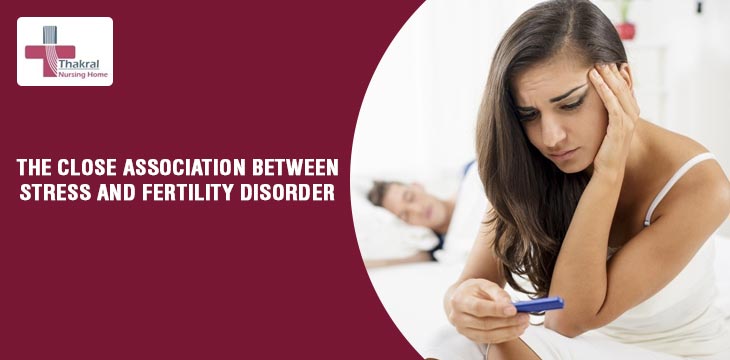
The Close Association Between Stress And Fertility Disorder
Everyone knows that living with anxiety can be frustrating when even the most well-intentioned of people tell you to “relax.” For many, this just appends to the anxiety, rather than de-escalating it. Driving through fertility journey whether that means trying to get pregnant for the first time, coping with fertility dilemmas like secondary infertility, allocating IVF treatment and other supported reproductive technology—is intrinsically stressful, and it’s reasonable to exhibit anxiousness and astonished.
On many occasions, you might have heard from your close relative or your best friend that you should relax and this will help you get pregnant faster. This usually perceived advice is the research topic of a recent paper in the journal Human Reproduction.
At the identical time, investigations show that stress and anxiety can cause difficulties to one’s fertility, and that can embellish what you’re previously undergoing as a result of the circumstances. Anxiety, stress, depression and other mental health difficulties are particularly bad at taking control, notably when you really need them to. So, when we speak about stress-inducing circumstances like attempting to get pregnant, it’s important to recognize the impact they have, and how to relieve that stress.
Hormones And Fertility Disorder
When you’re sensing anxiousness, your nervous system discharges stress hormones such as cortisol, and those hormones display in things like raised heart rate, superficial breathing, and high blood pressure. People encounter stress in different ways, too, such as sadness, anger, insomnia, and headaches. Due to flight and fight response, it gets triggered when a notably stressful situation arises.
The Science Behind Stress And Fertility
Several current studies have discovered links between the women’s levels of day-to-day stress and lowered speculations of pregnancy. For instance, women whose saliva had high levels of alpha-amylase, a catalyst that marks stress, took 29% higher to get pregnant matched to those who had less.
It has also been observed that stressed women probably also have sex less often and are inclined more likely towards smoking or drinking too much alcohol or caffeine — habits that can hardly enhance their odds.
In a small study published in 1990 it showed that reducing stress with group therapy, individual cognitive behavior therapy, and recreation techniques like guided representation served some infertile women get pregnant. Today, researchers universally accept that stress and fertility are related. They know now that stress hormones such as cortisol interrupt signaling between the brain and the ovaries, which can end up ovulation.
About 1 in 10 women of childbearing age have struggle conceiving or ending the pregnancy, as per different studies and analyses conducted. Ordinarily, there is a physical reason, such as blocked fallopian tubes. But as days go by without conception, stress may kick in. Researchers have also deduced that women struggling with infertility have the same levels of anxiety and depression as women diagnosed with cancer or HIV.
Different Solution To Combat Stress
Various programs intend to curb the stress in several ways. Head is talk therapy to nourish and reframe your opinions. You learn to challenge spontaneous negative thoughts like, “I’ll never get pregnant,” or condemning yourself. By practicing a type of yoga called hatha yoga, which pairs yoga postures with long breathing activities. Researchers say it’s a system for women to nourish themselves.
Reference
Planning for your parenthood journey, feel happy before start off. If still stress and depression tries to creep in try meeting Dr. Neeru Thakral the best Gynae Laparoscopic surgeon in Gurgaon.